Ivory Coast impasse risks a return to violence
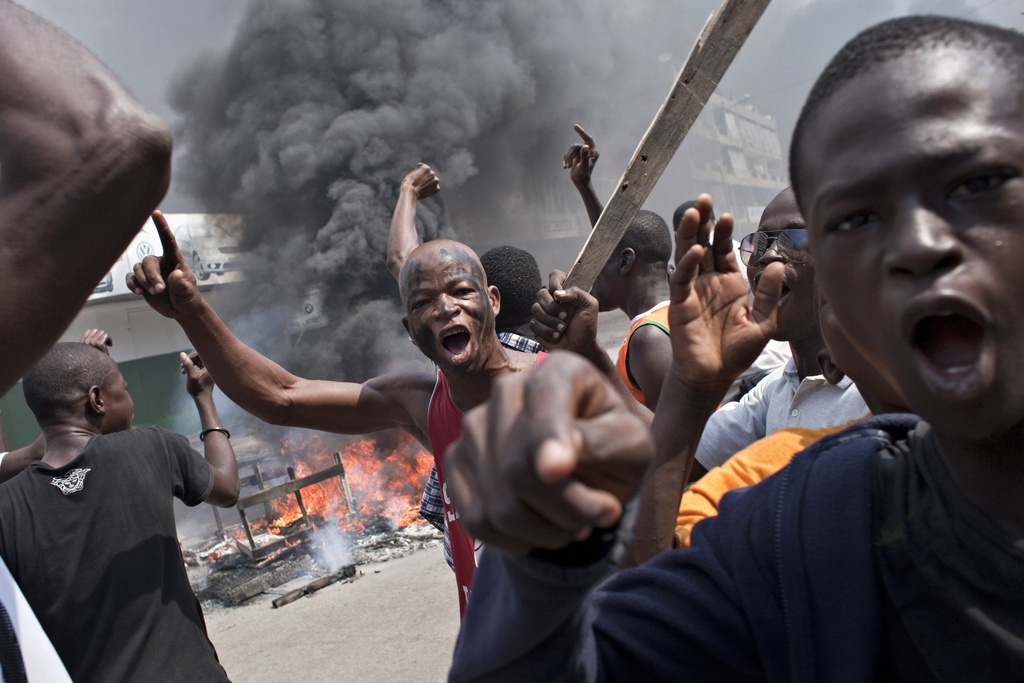
The disputed election in the Ivory Coast on November 28 is threatening to knock the country back a decade, a Swiss diplomat tells swissinfo.ch.
Gérard Stoudmann, appointed United Nations envoy for the 2006 Ivory Coast elections by former UN Secretary-General Kofi Annan, says the international community must, with one voice, support the wish of the Ivorian people.
Stoudmann’s post was terminated in 2007 by the president, Laurent Gbagbo.
On Monday former South African leader Thabo Mbeki failed to settle an election row between Gbagbo and presidential claimant Alassane Ouattara, but made a plea for a peaceful solution.
Mbeki had aimed in two days of talks to defuse a power struggle enveloping the country since a poll which the electoral commission and international observers say Ouattara won. On Monday the UN said it was temporarily moving non-essential staff from its mission in Ivory Coast out of the country
Ouattara has been recognised as president by UN Secretary-General Ban Ki-moon, US President Barack Obama and others but Gbagbo, backed by the military and the top legal body, has refused to concede.
The election was meant to reunite the former regional economic star after a 2002-03 civil war, but analysts warn the dispute could now pit the army against pro-Ouattara rebels.
Gbagbo’s original mandate as president expired in October 2005, but presidential elections have been repeatedly put back.
swissinfo.ch: Laurent Gbagbo has threatened to expel the UN’s peacekeeping envoy to Ivory Coast, YJ Choi, who certified the provisional result, “for interference”. That should bring back some memories…
Gérard Stoudmann: It does indeed. I think that from 2006 Laurent Gbagbo had doubts about his re-election. This result was predictable in a fair election because Alassane Ouattara comes from the north, like the majority of the population. Added to that are all those voices from the south that are disenchanted with the current government, which they blame for the deterioration of the economic situation and the impoverishment of the country.
Gbagbo knew that, which is why he avoided holding elections like the plague and postponed them for as long as he could. As a last resort, he had intended, from 2006, to put the Constitutional Council, which is responsible for validating the election – under his control. By doing this, he controlled the electoral process. All attempts to prevent the independent electoral commission from publishing the results in time were linked to this. It was the “worst case scenario” – this is a crisis that has been nurtured for a long time.
swissinfo.ch: How has the role of the UN evolved since you left the Ivory Coast?
G.S.: The UN plays an essential role in preparing and ensuring a fair running of elections and in certifying the results announced by the independent electoral commission. Choi was very clear when he declared Alassane Ouattara the winner.
The UN is neutral. In the eyes of the international community, Ouattara has been elected president of the Ivory Coast. And it’s thanks to the presence of UN blue helmets that the outbursts of violence haven’t been more serious.
swissinfo.ch: You are very critical of the Constitutional Council. What do you make of the independent electoral commission?
G.S.: Tribute should be paid to the courage of and the work achieved by the independent electoral commission, of which Africa can be proud. It has managed to organise free and fair elections under extremely difficult conditions.
swissinfo.ch: What’s going to happen now? Do you think Ouattara will let his victory be stolen from him?
G.S.: Ouattara’s supporters are not going to let his victory be stolen. He has a legitimacy behind him. There’s a risk of having two parallel governments. That would knock us back ten years. The fact is that Gbagbo doesn’t control the north of the country. The most important thing is to avoid violence. President Gbagbo should respect the wish of the Ivorian people and avoid being responsible for a return to violence and war.
swissinfo.ch: But Gbagbo has the support of the army.
G.S.: He has the support of General Philippe Mangou [army chief of staff], but not of the entire army. It is known that there are several sympathies within the army – what must be avoided at all costs is confrontation. After ten years of crisis, the Ivorian people want peace. The country needs stability to rebuild itself.
If Gbagbo wants to be of use to the Ivory Coast – and Africa – he should respect the result of the election and think above all of what is at stake for his country and its population. The changeover of power should become the norm in the Ivory Coast, in the image of neighbouring countries Ghana and Guinea.
swissinfo.ch: Can Prime Minister Guillaume Soro, who organised these elections, help break the deadlock?
G.S.: The role of Guillaume Soro – who is very intelligent – is reflected in his attachment to democratic values. And he has recognised Alassane Ouattara as the true winner of the these elections and as the elected president of the Ivory Coast.
swissinfo.ch: How does one end the crisis?
G.S.: There needs to be a very clear message from the international community that there are no alternatives to respecting the wish of the Ivorian people. I believe that the Economic Community of West African States and the African Union (Ecowas) has an important role to play.
It is above all up to African organisations to make the parties see reason, with the support of the international community and the UN Security Council. The international community can achieve a lot, on condition that it is united. Gbagbo is counting on dissension at the heart of the international community.
Studied law at Lausanne University and international relations at the Graduate Institute of International Studies in Geneva.
1995: deputy head of the Swiss delegation to the Organization for Security and Cooperation in Europe (OSCE) in Vienna.
1997: appointed ambassador and elected director of the OSCE Office for Democratic Institutions and Human Rights (ODIHR) in Warsaw.
2002: director of the Geneva Centre for Security Policy.
From 2006-2007 he was UN envoy for the elections in the Ivory Coast.
This post was discontinued in 2007 following pressure from Laurent Gbagbo.
On November 20, 2009, he was named Special Representative of the Secretary-General for Organisational Development and Reform in the Council of Europe.
Switzerland has not taken sides in the election dispute, but shares the scepticism of the international community. David Vogelsanger, Swiss ambassador to the Ivory Coast, did not attend the swearing-in ceremony of Gbagbo.
On Sunday the Swiss foreign ministry advised Swiss not to travel to the Ivory Coast due to the political crisis in the west African nation.
Swiss citizens who are currently in Ivory Coast are advised to inform the Swiss embassy in Abidjan of their whereabouts.
The embassy can be contacted at the following telephone numbers: +225 20 21 17 21 and +225 07 83 06 55.
Analysts say the nightmare scenario for the region is that an escalation of the crisis would sink it back into the conflict that in 2002-2003 pitted government forces against northern rebels.
Any mass movement of Ivorians across borders would risk destabilising countries with few means or infrastructure to host thousands of refugees.
Liberian authorities said they had seen a trickle of around 700 new arrivals since the weekend.
For others such as Mali and Burkina Faso, serious unrest in Ivory Coast could cut off a vital transit route to the coast.
(Adapted from French by Thomas Stephens)

In compliance with the JTI standards
More: SWI swissinfo.ch certified by the Journalism Trust Initiative
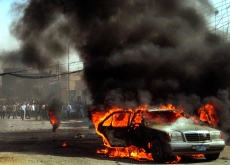
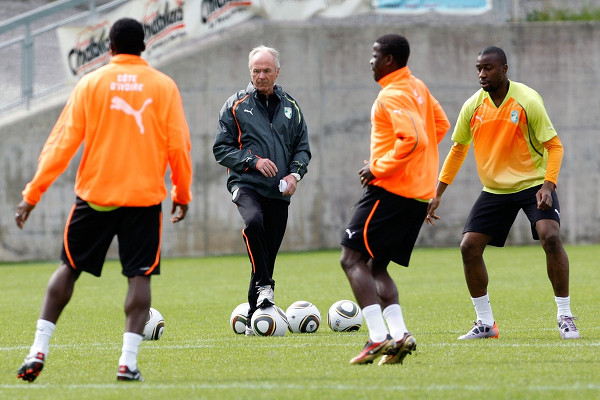
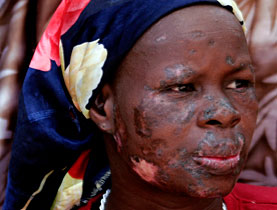
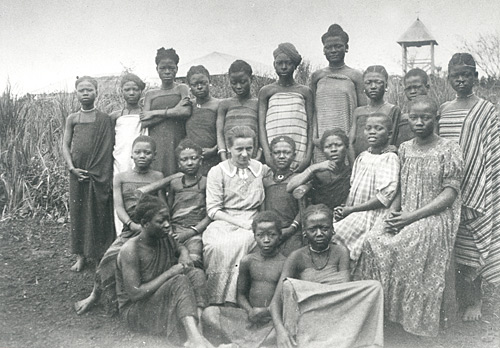
You can find an overview of ongoing debates with our journalists here . Please join us!
If you want to start a conversation about a topic raised in this article or want to report factual errors, email us at english@swissinfo.ch.